Find out why 1M+ professionals read Superhuman AI daily.
In 2 years you will be working for AI
Or an AI will be working for you
Here's how you can future-proof yourself:
Join the Superhuman AI newsletter – read by 1M+ people at top companies
Master AI tools, tutorials, and news in just 3 minutes a day
Become 10X more productive using AI
Join 1,000,000+ pros at companies like Google, Meta, and Amazon that are using AI to get ahead.
💛 A Little Click Goes a Long Way
We carefully choose the ads in this newsletter to make sure they’re family-friendly and relevant. When you click on them, you’re helping keep Playful Parent free and thriving—so thank you for supporting us with just a tap or two!
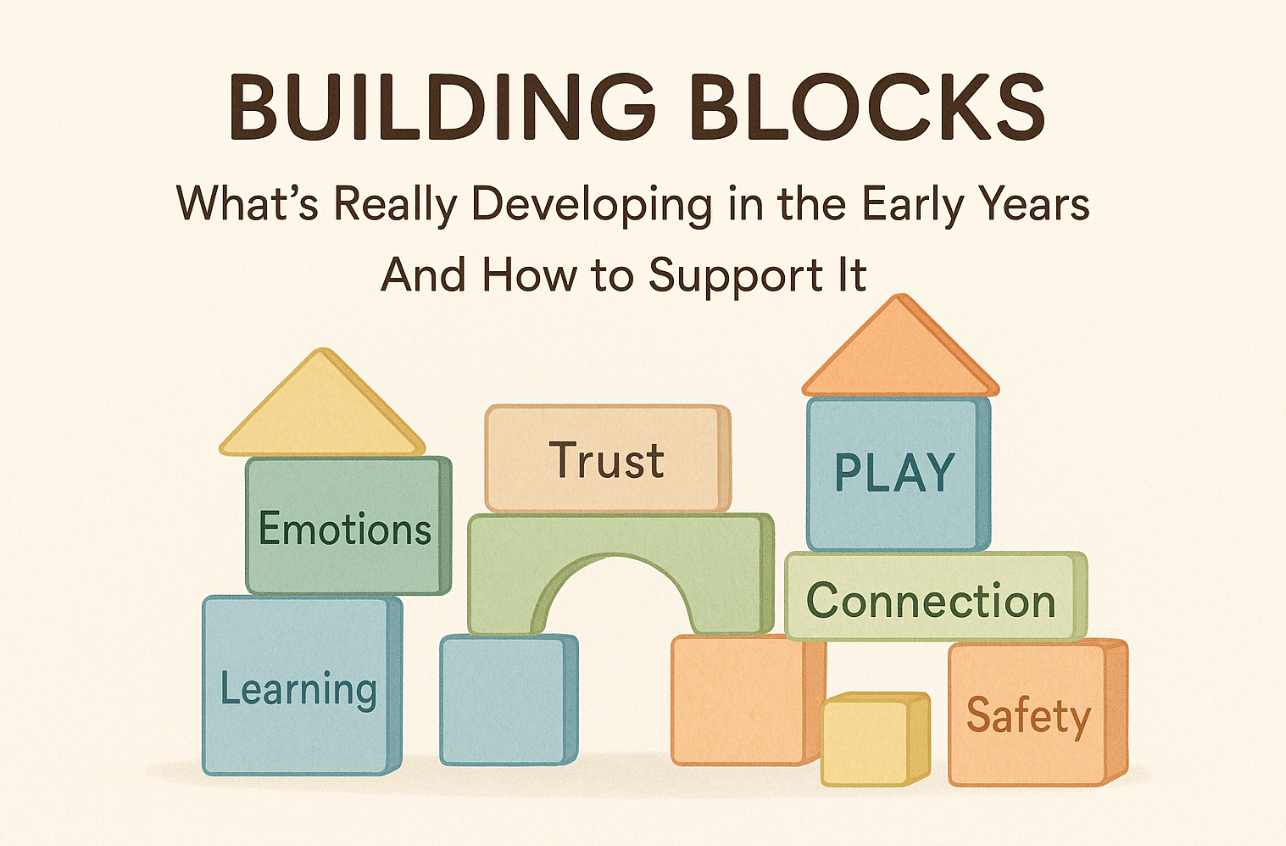
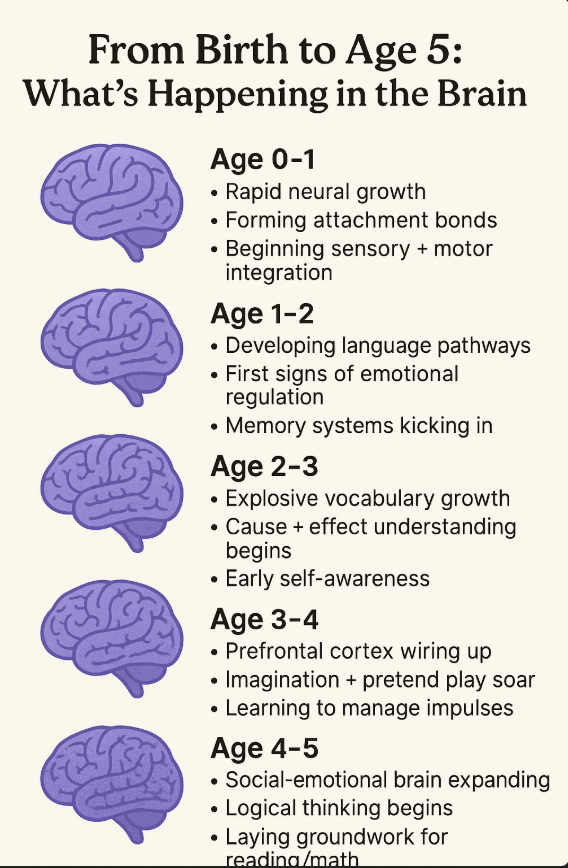
🧱 The Building Blocks of Childhood
What’s Really Developing in the Early Years
When we picture early learning, we might imagine counting games, alphabet puzzles, or milestone charts. But underneath it all, something even more powerful is taking shape: the foundation for how a child moves through the world.
From birth to age five, children aren’t just learning facts — they’re building the systems that shape their emotions, behaviors, and relationships for life. These early years are less about teaching and more about scaffolding — offering warm, responsive support while their brain and body organize themselves.
Here are just a few of the “invisible” systems developing in early childhood:
🧠 Executive Function
The brain’s control center: attention, memory, impulse control, and flexible thinking.
Support it with: open-ended play, patience with repetition, and gentle routines.
❤️ Emotional Regulation
Children aren’t born knowing how to calm down — they learn this through co-regulation.
Support it with: modeling calm, staying close during big feelings, and offering tools to name and move emotions.
🧩 Sensory Processing
Children are learning how to handle noise, textures, movement, and other input.
Support it with: varied sensory experiences, outdoor time, and patience for sensitivities.
🗣️ Language & Communication
Language grows through connection, not correction.
Support it with: face-to-face conversation, songs, shared books, and following their interests.
Before kids can “be nice,” they must first understand themselves and others.
Support it with: modeling empathy, narrating social situations, and play that invites cooperation.
The good news? You don’t need fancy tools or constant teaching. The most powerful support comes from simple, everyday interactions: laughing together, holding space for emotions, and creating rhythms that feel safe.
You’re not just building skills —
you’re building a person.
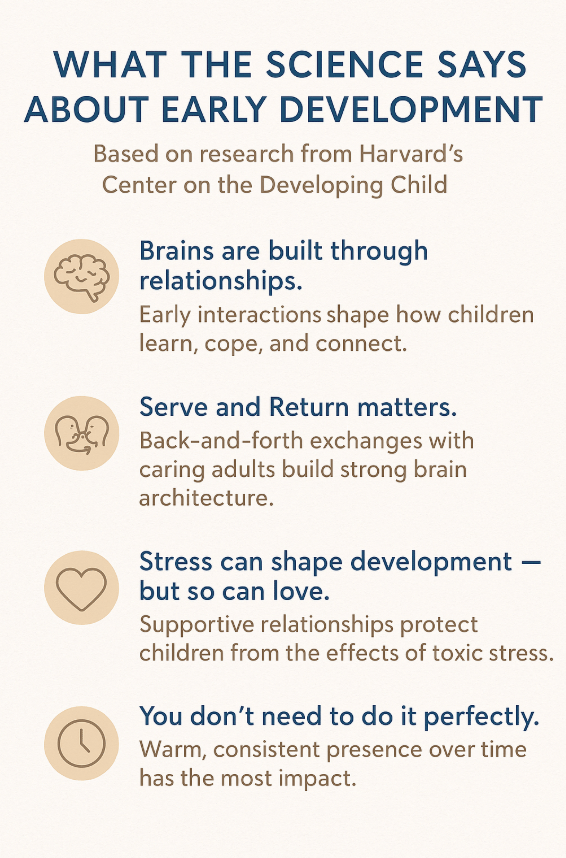
Want more fact based evidence? Check out this interesting read!
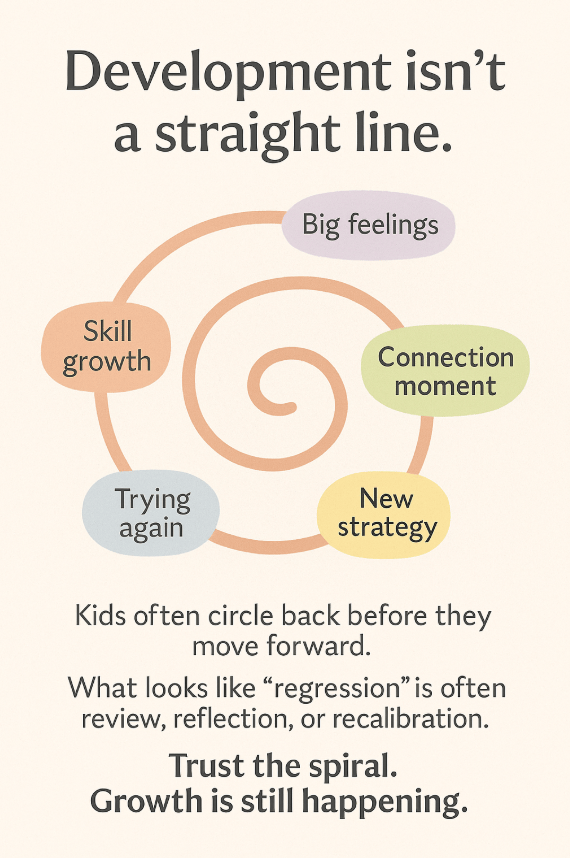
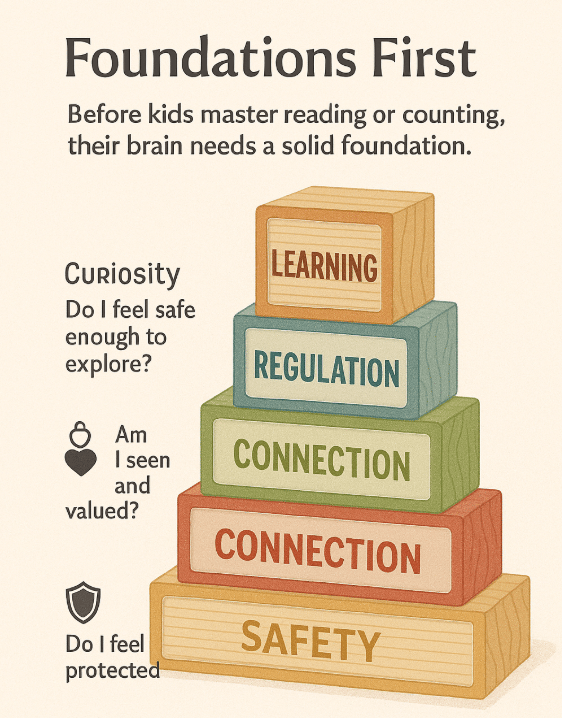
As we wrap up this week, we’re reminded that the early years aren’t a race to achievements — they’re a time of quiet construction. Every connection, every meltdown soothed, every story read with love is a brick in the foundation of a lifelong learner. It’s not about perfection or pressure — it’s about showing up, again and again, with presence. When we slow down and support what’s happening underneath the surface, we give our children something lasting: the inner architecture for resilience, empathy, curiosity, and confidence. That’s the real work. And you’re already doing it.


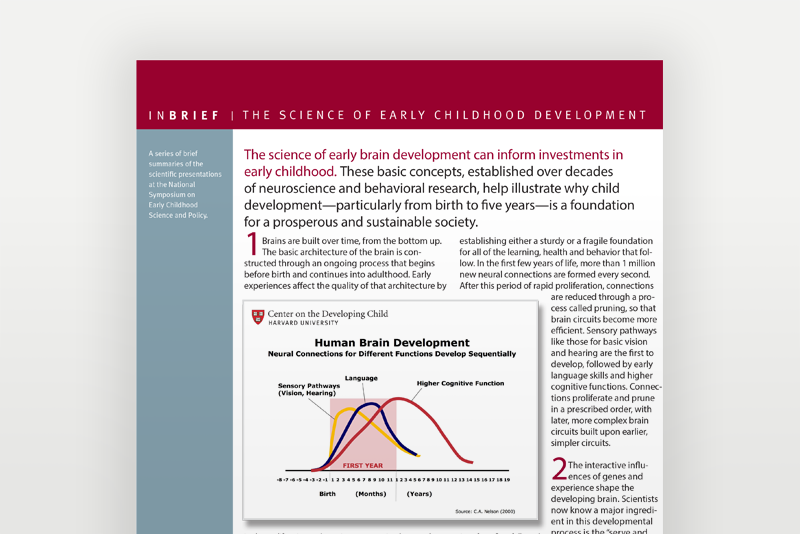

👫 Social & Moral Development